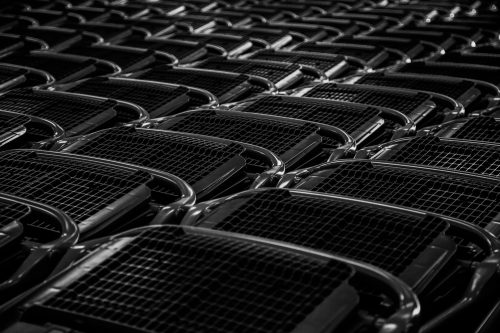Forsake your brothers / give up on your lovers,
to get the things / you think you need.—Jay Nash, “Sweet Talking Liar”
Unlike some men, I used to enjoy shopping. The act itself felt therapeutic—it took my mind off the vapid, empty life I was leading. I bought things to pacify the sadness and discontent within. Clothes, gadgets, and accessories were my holy trinity.
Shackled by the chains of consumerism, I ended up with things I didn’t need—things I didn’t even want much of the time. So I stored those excess things in my basement or my extra closets or in large storage containers stacked in various rooms throughout my oversized house. I didn’t use the stuff, but I held on to it just in case.
But I ended up with much more than just the stuff I bought. I ended up with debt from the stuff I financed or purchased with credit cards. And I ended with anxiety from that debt and anxiety from the space the stuff occupied.
Unbeknownst to me, I developed a sense of attachment to my stuff over time. I didn’t question this feeling, I simply accepted it, which made letting go very difficult. All this misguided angst led me to more shopping in an attempt to fill the void I’d created.
It was a vicious cycle.
Eventually, when I stumbled across minimalism, my eyes were forced open and I saw a scary new world. I began to realize that this never-ending cycle of consumerism would lead to perpetual discontent—unless I broke the cycle (and only I could do it, no one else could do it for me). I realized that while I needed some stuff, there was no meaning in my endless consumption loop.
I needed to close the loop.
Not only did I need to stop buying most of the stuff I was buying, but I had to start paring down and getting rid of the stuff I didn’t need.
I knew simply getting rid of my stuff wasn’t the complete answer. I knew I could get rid of all my stuff and sit in an empty room and be just as miserable as I was before. Rather, I needed to discover what was important in my life. I needed to replace the stuff in my life with meaningful pursuits.
So as I got rid of the excess stuff, I replaced it by focusing on the important aspects of my life: I radically improved my health. I focused on the relationships I had forsaken for so long. I pursued my passion for writing fiction. I found ways to improve daily and grow as an individual. And I began to contribute beyond myself. These are the things that allowed me to do something that shopping could never let me do—they allowed me to live a meaningful life.
Today, less than two years later, a shopping mall feels like an unwelcoming place of chaos, destruction, and anxiety. Today, I’d rather have a meaningful experience than negotiate the halls of a crowded shopping mall looking for that crack-cocaine high of yesteryear.

